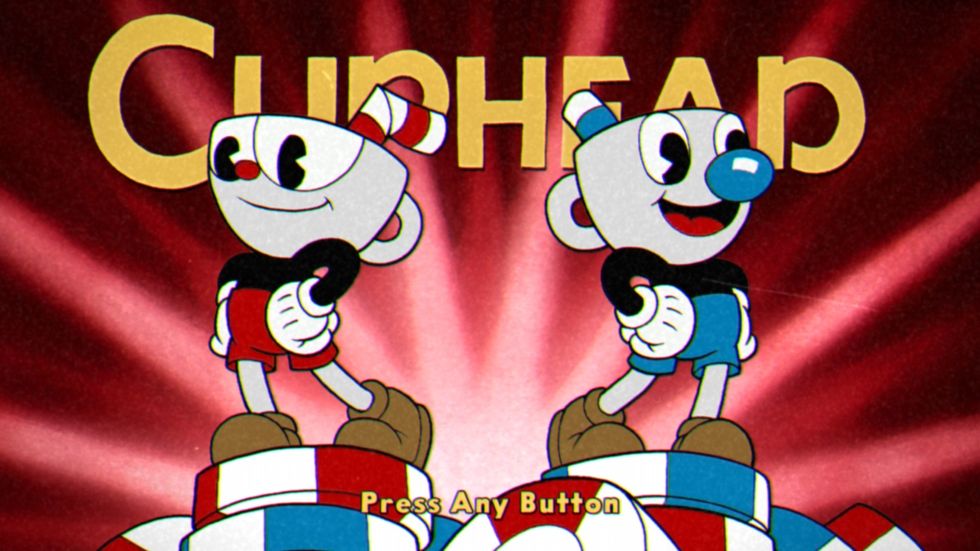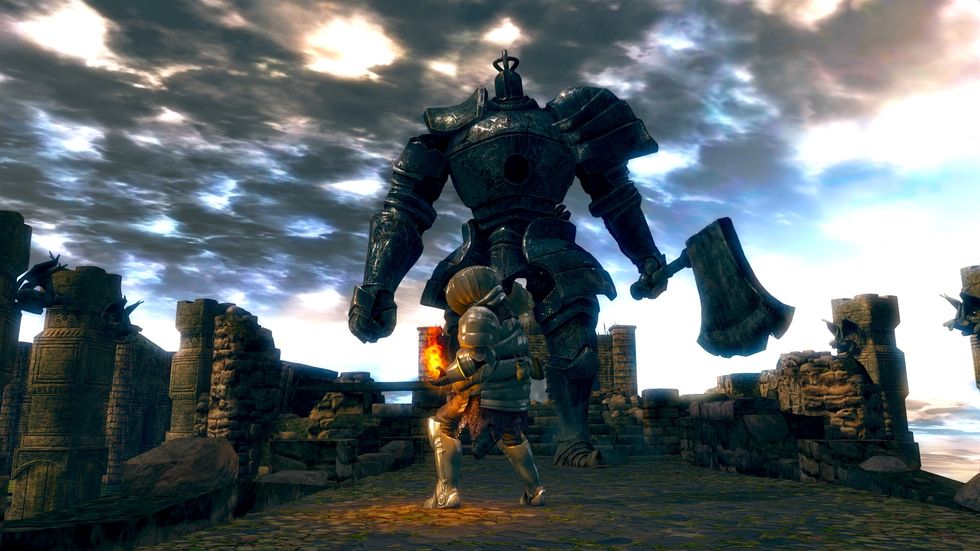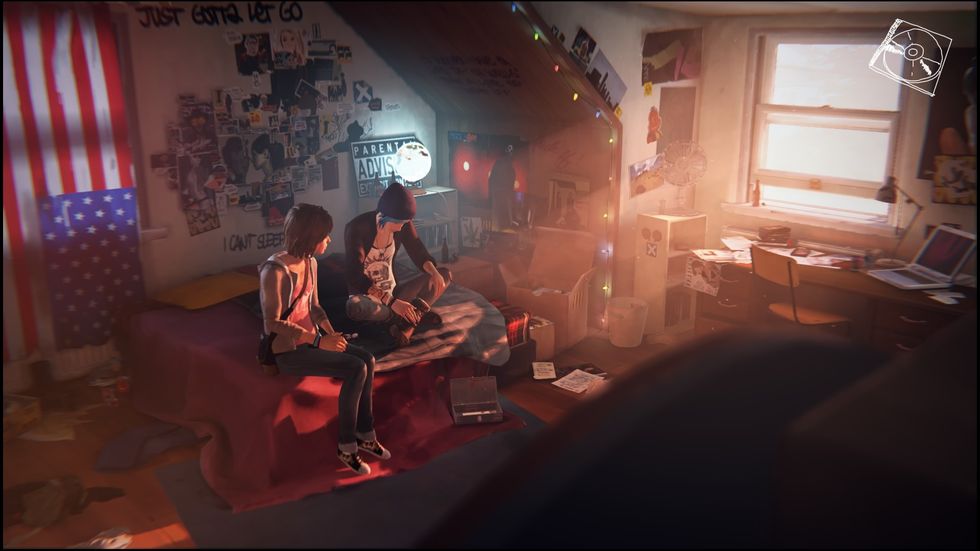With the recent success of Studio MDHR Entertainment’s Cuphead, the debate over how difficult video games should be has reignited again, in another attempt by fans of popular things to objectively define matters of personal taste. Cuphead is a blisteringly hard run and gun shooter that demands precise timing, pattern recognition, and iron-willed persistence from its players, and thus divided those who wanted to experience the game in its entirety versus those who just want to see the game and appreciate it.
Those who say that games should be hard say that the story is in the struggle. Video games are unique in that they allow you to step into the shoes of the character you’re playing as more fully than any other artistic medium. Whatever they go through, the player goes through, if the game has developed the player character well enough. Their adversity is our adversity, and their triumphs are our triumphs. A heightened difficulty, in their minds, serves to elevate the connection between character and player. It makes the eventual defeat of whatever challenge the game has laid out for them that much sweeter. Take, for example, game journalism’s perennial point of comparison for hard games, FromSoftware’s Dark Souls. For as many ironic parallels are drawn between it and other games, the Souls series does a great job at frustrating the player in a way that makes them want to try again and again until they get to the next bonfire or beat the next boss; it wouldn’t have such a ravenous following if it didn’t. The satisfaction gained from overcoming a challenge that had been previously beating you into the ground is immense, something that would’ve been lost had you’d been able to breeze through without adversity. Dark Souls's rigor is the reason why it was such a hit when it came out, and why so many imitations of it have come out since it released.
Dark Souls has a rabid fanbase precisely because of its insane difficulty. Photo courtesy of Kotaku Australia
However, not every game can be Dark Souls, and not every game should be. Those on the opposite side of the argument say that video games are more than just tests of reflexes now; they are a fully-fledged method of expressing an artistic vision, and they don’t necessarily need to resemble what most people think of as a “game”. Recent adventure games, such as Telltale Games’ three seasons of The Walking Dead, Infinite Fall’s Night in the Woods and DONTNOD Entertainment’s Life is Strange, emphasize story and characters instead of their more traditional game-like elements. In these games, the challenge is not defeating some seemingly unkillable enemy or trying to outthink your opponent’s movements; rather, the challenge is trying to make a difficult decision in the situation the game lays out for you. Do you let your friend beat up a bully, or do you stop him before he goes too far? Do you give food to the other family or keep it for yourself? How do you respond to your partner’s questions about yourself, the world, or others? While some of these choices end up affecting the story at large, more often than not the choices illustrate the character of the person you’re playing as. Other so-called “walking simulators”, such as Campo Santo’s Firewatch, Bloober Team’s Layers of Fear and Fullbright’s Gone Home, eschew game mechanics almost entirely to instead focus on delivering a narrative experience set within an interactive medium. Many of these games use breadcrumbs of story to move the plot along, something made more effective by the fact that the player is an active participant in the game, rather than watching the information be discovered by someone else. No matter the style, most everyone would agree that these stories would be underserved if they felt they had to artificially increase their difficulty to meet some sort of criteria to be considered a game. Games like The Walking Dead or Gone Home are not meant to be challenges; they’re meant to be narrative experiences.
Life is Strange is part of a new wave of adventure games that emphasize story and player choice over traditional gameplay. Photo courtesy of Life is Strange Wiki
No matter how hard video games as a whole end up being, my hope is that, if I’m allowed to editorialize, games use what makes them special to further their artistic and creative boundaries. Too often, many modern AAA games try and make their games more “cinematic” by aping film techniques such as adding deliberate visual mistakes, like lens flare, motion blur and a filter of film grain, to give the impression that the game was shot on a camera rather than programmed. Moreover, the imitation of cinema ends up affecting the gameplay as well, with rigid, scripted sections of interaction acting more as funnels leading the player from one cutscene to the next rather than the things that make the game worth playing. This imitation of another medium in an attempt to validate games as an art form ends up having the opposite effect, making games look desperate to be accepted as a legitimate artistic medium by way of shallow imitation of an already established form of expression. If the video game industry continues down this path, their works will never escape from cinema's shadow and games will never be allowed to stand on their own.
To avoid this, video games need to do the things that set them apart from all other forms of art and entertainment. As I said previously, games have an unparalleled ability to make players empathize with their characters by having players take direct control of their actions. In addition, the implicit understanding that the game will never lie to the player can be exploited and abused in unique metatextual ways. (See Yager Development’s Spec Ops: The Line and Team Salvato’s Doki Doki Literature Club! for horrifying takes on this concept.) Tying back to difficulty, a well-calibrated learning curve can complement a character’s arc, integrating story with gameplay rather than keeping the two separate. The XCOM series of turn-based strategy games, to name an example, has always been utterly merciless to its players to emphasize the difficulty of keeping Earth safe from extraterrestrial threats while world leaders try to slash your budget. Whatever the case, if game companies are going to continue to make games, they must embrace the one-of-a-kind nature of the video game medium and start tailoring their experiences around making the best possible game they can, something that cannot be boiled down to making it easier or harder. In the end, there’s no magic bullet of difficulty for video games as a whole, no matter what gamers say otherwise.

























